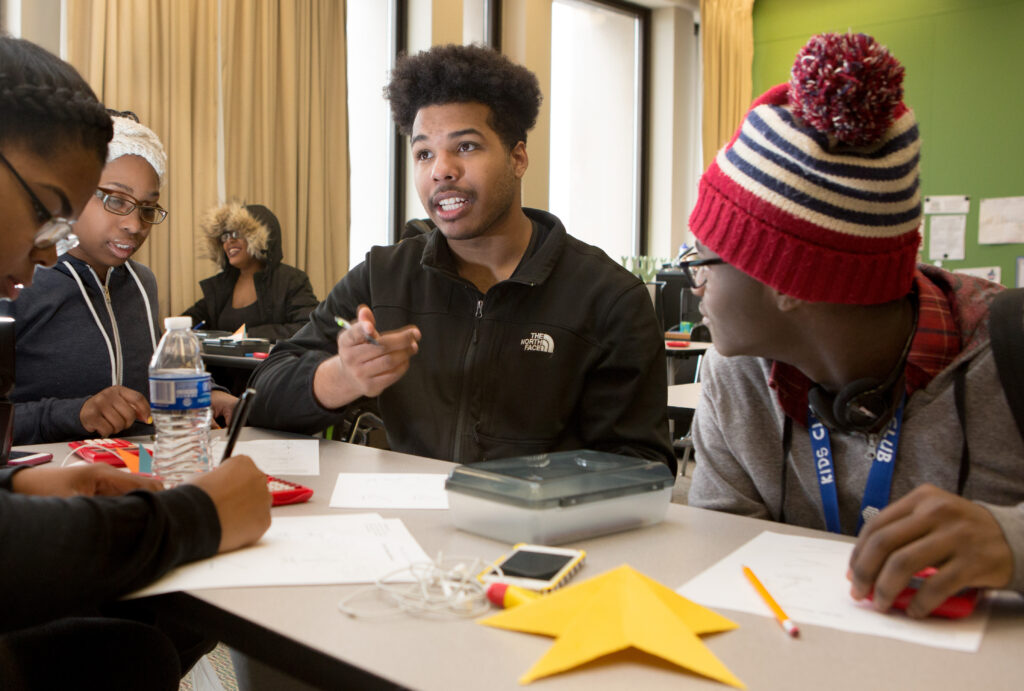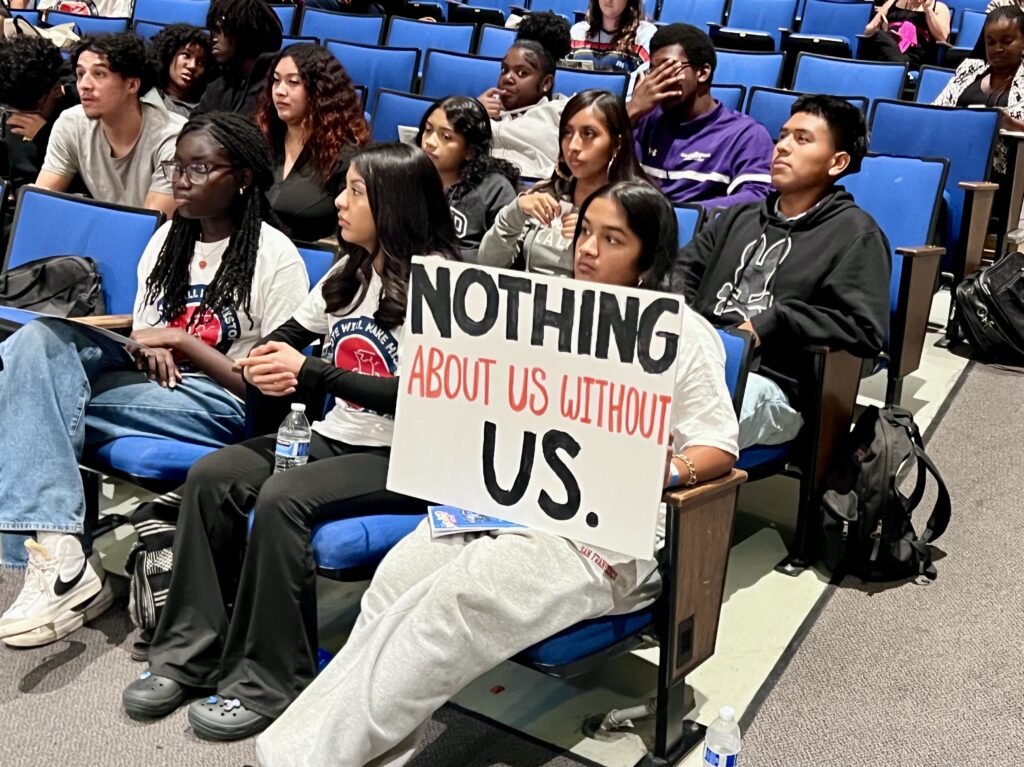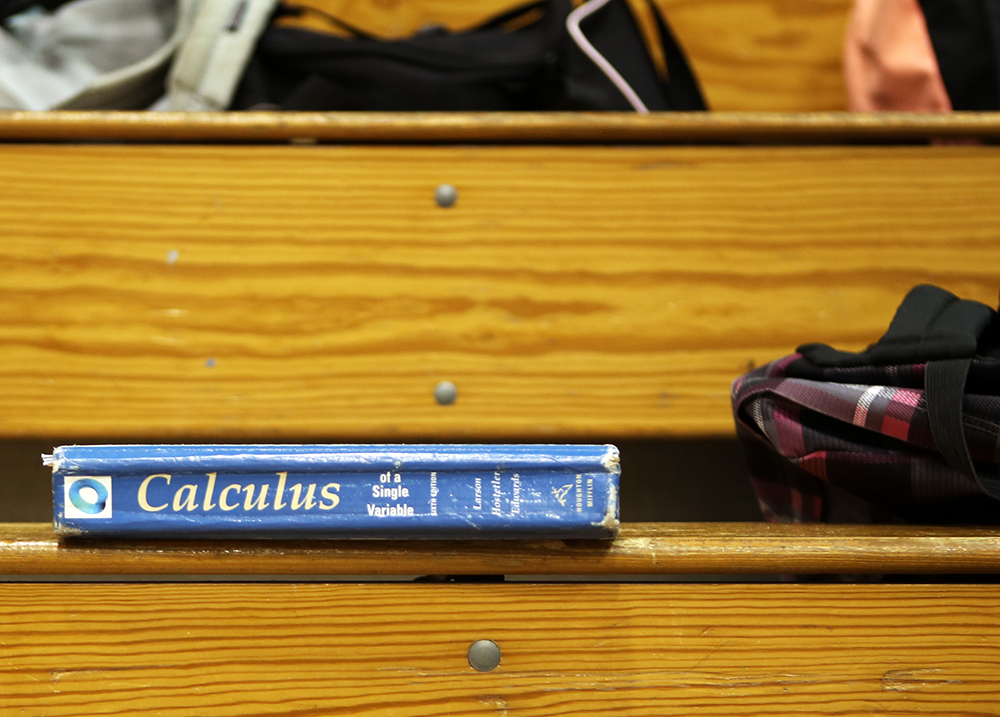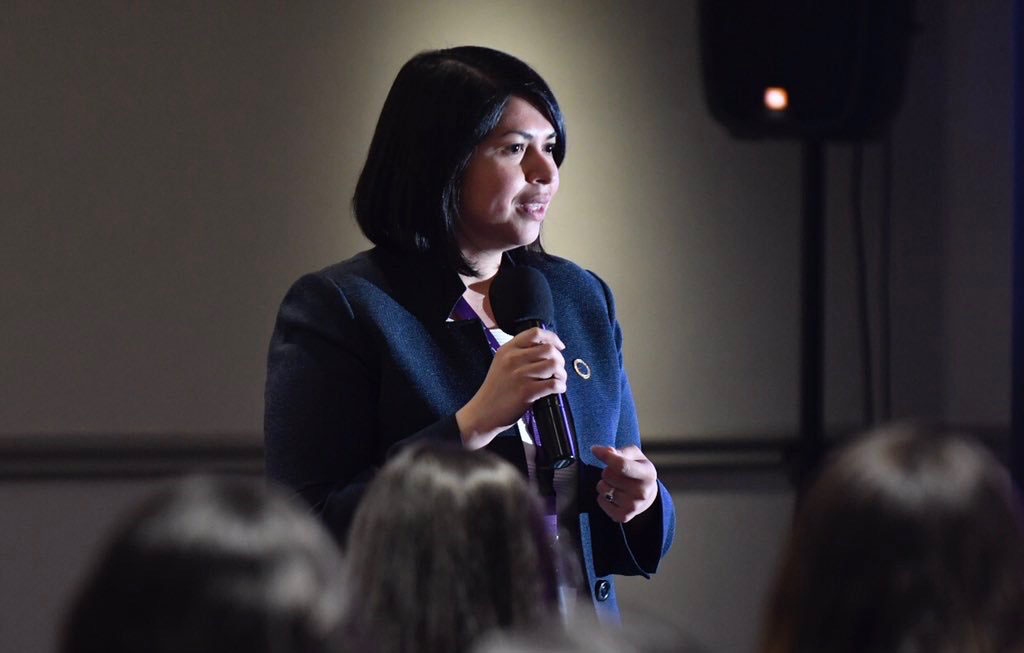Glenn Kessler is the fact-checker for The Washington Post. During Trump’s first term, he documented over 30,000 lies. In this post, he reviews Trump’s statements about his first 100 days.
He writes:
President Donald Trump granted a lengthy interview to Time magazine in honor of completing his first 100 days of his second term today. As usual, the interview consisted of bluster and bombast, with hefty doses of B.S. Here’s a guide to the inaccuracies in 32 claims, in the order in which he made them.
“You know, we’re resetting a table. We were losing $2 trillion a year on trade, and you can’t do that. I mean, at some point somebody has to come along and stop it, because it’s not sustainable.”
Trump gets two things wrong here. First of all, the goods and services deficit was almost $920 billion in 2024, according to the Commerce Department. So he’s doubling the real number. Second, the United States is not “losing” money on trade deficits. After all these years, Trump still does not grasp this fundamental economic point. Yet he’s basing policy — and steering the United States into economic uncertain times — on this misunderstanding.
“Many criminals — they emptied their prisons, many countries, almost every country, but not a complete emptying, but some countries a complete emptying of their prison system. But you look all over the world, and I’m not just talking about South America, we’re talking about all over the world. People have been led into our country that are very dangerous.”
This is poppycock. Immigration experts know of no effort by other countries to empty their prisons and mental institutions. As someone who came to prominence in the late 1970s and early ’80s, Trump appears to be channeling Cuban leader Fidel Castro’s 1980 Mariel boatlift. About 125,000 Cubans were allowed to flee to the United States in 1,700 boats — but there was a backlash when it was discovered that hundreds of refugees had been released from jails and mental health facilities. But there’s no evidence this happened during the Biden administration. Yet again, Trump is basing policy on an invention.
“We’re taking in billions of dollars of tariffs, by the way. And just to go back to the past, I took in hundreds of billions of dollars of tariffs from China, and then when covid came, I couldn’t institute the full program, but I took in hundreds of billions, and we had no inflation.”
This is false. Trump’s China tariffs in his first term took in only about $75 billion — not counting $28 billion in aid to farmers who lost their shirts when China stopped buying soybeans, pork and other products. Inflation averaged about 2 percent in Trump’s term, but was about 1.23 percent in 2020 because of the pandemic. According to Customs and Border Protection, as of April 19, the United States has taken in about $14 billion in tariffs under his International Emergency Economic Powers Act (IEEPA) declarations. But again, Trump has a fundamental misunderstanding. Countries do not pay tariffs; the burden falls mainly on American consumers.
“Now, if you take a look, the price of groceries are down. The price of energy is down.”
This is false. The consumer price index for at-home food items increased 0.49 percent from February, while retail gas prices are basically the same since Trump took office in January. The price of oil could drop if there’s a recession, as some economists predict.
“It was all going through the roof. And we had the highest inflation we’ve ever had as a country, or very close to it. And I believe it was the highest ever. Somebody said it’s the highest in only 48 years. That’s a lot, too, but I believe we had the highest inflation we’ve ever had.”
This is false. President Joe Biden did not have the highest inflation in U.S. history. Inflation spiked to 9 percent in mid-2022, a 40-year-high, but fell to about 3 percent for the last six months of his term. (For all of 2022, inflation was 6.5 percent.) Inflation was 12.5 percent in 1980, 13.3 percent in 1979 and 18.1 percent in 1946 — and many other years were higher than 6.5 percent.
Higher prices for goods and services would have happened no matter who was elected president in 2020. Inflation initially spiked because of pandemic-related shocks — increased consumer demand as the pandemic eased and an inability to meet this demand because of supply-chain problems, as companies reduced production when consumers hunkered down during the pandemic. Indeed, inflation rose around the world — with many peer countries doing worse than the United States — because of pandemic-related shocks that rippled across the globe.
“No wait, just so you understand: How can we sustain and how is it sustainable that our country lost almost $2 trillion on trade in Biden years?”
Trump’s numbers are wrong. The trade deficit in the Biden years (2021-2024) was $3.5 trillion, but as we noted, no economist would call that a loss. For context, the trade deficit in Trump’s first term was $2.4 trillion — and it went up during his presidency.
“If you look at, more importantly, the companies, the chip companies, the car companies, the Apple. $500 billion. Apple is investing $500 billion in building plants. They never invested in this country.”
This is false. Shortly after Biden became president, Apple announced it would invest $430 billion over five years in the United States. In Trump’s first term, Apple announced a $350 billion investment over five years — which Trump repeatedly credited to his policies.
“Look, that’s what China did to us. They charge us 100 percent. If you look at India — India charges 100-150 percent. If you look at Brazil, if you look at many, many countries, they charge — that’s how they survive. That’s how they got rich.”
This is false. Before Trump became president the first time, China had minimal tariffs on U.S. products and about 8 percent on the rest of the world, and few products were subject to tariffs, according to the Peterson Institute for International Economics. When Trump imposed tariffs in 2018, China responded with tariffs of about 20 percent, affecting about half of exports. In his second term, Trump has imposed tariffs of 143 percent, and China has responded with 124 percent. China’s tariffs on goods from the rest of the world is now about 6 percent. As for India, its average applied tariff is about 17 percent, according to Office of U.S. Trade Representative, far less than what Trump claims.
“We’re also, very importantly, because of that, because of the money we’re taking in, those companies are going to come back and they’re going to make their product here. They’re going to go back into North Carolina and start making furniture again.”
This is dubious. North Carolina has a thriving furniture industry, but it increasingly relies on wood from countries such as Mexico — and exports to Canada. Trump’s tariffs will make raw materials more expensive and retaliatory tariffs will price U.S. products out of the market. Already this month, a North Carolina housewares company that supplies Walmart and Target said it would shut down and fire all its employees, in part because tariffs would make materials from Mexico and Asia too costly.
“I’ve made 200 [trade] deals.”
This is false. Trump declined to provide any details, and none have been announced. Commerce Secretary Howard Lutnick on Tuesday suggested one deal was close to being completed — but he said it needed approval from the country’s leaders. He declined to name the country.
“You know, as an example, we have Korea. We pay billions of dollars for the military. Japan, billions for those and others. But that, I’m going to keep us a separate item, the paying of the military.”
South Korea and Japan pay as well. Trump often suggests other countries take advantage of U.S. military might. But it’s a two-way street. “From 2016 through 2019, the Department of Defense spent roughly $20.9 billion in Japan and $13.4 billion in South Korea to pay military salaries, construct facilities, and perform maintenance,” the Government Accountability Office concluded in 2021. “The governments of Japan and South Korea also provided $12.6 billion and $5.8 billion, respectively, to support the U.S. presence.” The U.S. stations 80,000 troops in the region and the GAO “found that U.S. forces help strengthen alliances, promote a free and open Indo-Pacific region, provide quick response to emergencies, and are essential for U.S. national security.”
“We have $7 trillion of new plants, factories and other things, investment coming into the United States. And if you look back at past presidents, nobody was anywhere near that. And this is in three months.”
This is false. At the beginning of April, the White House produced a list of only $1.5 trillion — two-thirds of which came from Apple and an AI project called Stargate that was already under development before Trump took office. Since then, we’ve counted a series of announced investments (Nvidia, Roche, IBM, Abbott Laboratories, Johnson & Johnson and so forth) that total perhaps another $1 trillion, though some may predate Trump and others are still vague. Announcements aren’t the same thing as actually breaking ground, so Trump may be counting his chickens before they hatch.
“He’s [Chinese leader Xi Jinping] called. And I don’t think that’s a sign of weakness on his behalf.”
The Chinese government denies this. “I would like to reiterate that China and the U.S. have not engaged in consultations or negotiations regarding tariff issues,” said Chinese Foreign Ministry spokesman Guo Jiakun on Monday.
“I believe that they made him [Kilmar Abrego García] look like a saint, and then we found out about him. He wasn’t a saint. He was MS-13. He was a wife beater and he had a lot of things that were very bad, you know, very, very bad. When I first heard of the situation, I was not happy, and then I found out that he was a person who was an MS-13 member. And in fact, he had a tattooed right on his — I’m sure you saw that — he had it tattooed right on his knuckles: MS-13.”
This is exaggerated. Kilmar Abrego García is a Maryland man who was in the country illegally but the administration admits he was wrongly deported to El Salvador — which led to a Supreme Court ruling that the White House must “facilitate” his return. The evidence that he was a member of violent Salvadoran gang Mara Salvatrucha (MS-13) is slim; it is a claim made by the alleged confidential source, and neither the police officer who wrote the report nor the alleged source testified in court, under oath and subject to cross-examination. His wife filed a temporary protective order against him, alleging that he beat her repeatedly, but she did not pursue it and now says the marriage became stronger after counseling. Abrego García did not have MS-13 tattooed on his knuckles. Rather, Trump on social media displayed a photo that superimposed those letters on his knuckles, but there is no evidence the tattoos Abrego García has are related to gang membership.
“Because I’ve watched in Portland and I watched in Seattle, and I’ve watched in Minneapolis, Minnesota and other places. People do heinous acts, far more serious than what took place on Jan. 6. And nothing happened to these people. Nothing.”
This is false. Trump justifies his pardoning of Jan. 6, 2021, defendants with a falsehood. People were prosecuted in Seattle and Minneapolis for violence during the 2020 protests after the George Floyd killing, and Trump lauded federal authorities for killing a man suspected in a shooting in Portland.
In Seattle, two people were killed, according to the Armed Conflict Location and Event Data project (ACLED), a nonprofit. Summer Taylor, a Black Lives Matter activist, died when a car rammed into the protests. Another person, 16-year-old Antonio Mays Jr., was shot in an incident that ACLED said was tied to the broader unrest. (Another fatal shooting of a teen was not connected, ACLED concluded.) Dawit Kelete, 30, who drove into the protest on July 4, 2020, killing Taylor and seriously injuring another person, was sentenced to 78 months in jail. The judge said that while there was no evidence he hit the protesters intentionally, his conduct was “extremely reckless.”
Mays died in the early morning of June 29, 2020, while driving a stolen Jeep in Seattle’s Capitol Hill Organized Protest zone, which protesters occupied for three weeks after police abandoned the area. No one has been charged in Mays’s death.
In Minneapolis, one person was killed, according to ACLED. The Max It Pawn Shop was set on fire during protests on May 28, 2020, and then two months later, police discovered a charred body in the wreckage. Surveillance video showed Montez Terriel Lee, 26, pouring an accelerant around the pawn shop and lighting it on fire. Lee was sentenced to 10 years in prison, to be followed by three years of supervised release, the Justice Department said.
In Portland, Aaron Danielson, an American supporter of a right-wing group, was shot on Aug. 29, 2020, by Michael Reinoehl, an activist who days later was shot and killed by a federal task force. Reinoehl had admitted the killing but claimed he acted in self-defense.
“Nobody mentions the fact that the unselect committee of political scum, the unselect committee, horrible people, they destroyed all evidence, they burned it, they got rid of it, they destroyed it, and they deleted all evidence.”
This is false. The House Select Committee that investigated the Jan. 6 attack on the U.S. Capitol said some videos and sensitive evidence were not included in an archive to protect witnesses. But more than 100 depositions, transcripts and other documents are available online and open to inspection.
“Well, I’ll tell ya, I certainly don’t mind having a tax increase, and the only reason I wouldn’t support it is because I saw Bush where they said, where he said ‘Read my lips’ and he lost an election. He would have lost it anyway, but he lost an election. He got beat up pretty good. I would be honored to pay more, but I don’t want to be in a position where we lose an election because I was generous, but me, as a rich person, would not mind paying and you know, we’re talking about very little.”
This is dubious. First of all, President Barack Obama raised taxes on the wealthy, and Biden won in 2020 while promising to do it again; George H.W. Bush’s problem was he broke a promise not to raise taxes. Second, as documented by the New York Times, despite his wealth Trump has a long history of paying little or no taxes. “Donald J. Trump paid $750 in federal income taxes the year he won the presidency. In his first year in the White House, he paid another $750,” the newspaper reported. “He had paid no income taxes at all in 10 of the previous 15 years — largely because he reported losing much more money than he made.”
“I don’t think they’re going to cut $800 billion. They’re going to look at waste, fraud, and abuse.”
This is false. The nonpartisan Congressional Budget Office issued a report that an analysis by KFF, a nonprofit health-policy organization, says the only way to reduce congressional spending, as mandated by the House GOP budget resolution, would be to cut $880 billion from planned Medicaid spending over 10 years.
Trump signs an executive order in the Oval Office on April 23. (Demetrius Freeman/The Washington Post)
“Well, I watched Nancy Pelosi get rich through insider information, and I would be okay with it [sign a bill banning congressional stock trading]. If they send that to me, I would do it.”
This is false. There is no evidence the former House speaker used inside information while trading stocks — which would be a crime. Her office said she owns no stocks, and investments listed in her financial disclosure statement belong to her husband, Paul, a venture capitalist and property investor.
“DOGE has been a very big success. We found hundreds of billions of dollars of waste, fraud, and abuse. Billions of dollars being given to politicians, single politicians based on the environment. It’s a scam. It’s illegal, in my opinion, so much of the stuff that we found, but I think DOGE has been a big success from that standpoint.”
This is false. Even the Department of Government Efficiency website, which has been found to be riddled with errors and double-counting, lists $160 billion in savings. The overall impact is still unclear. Experts think the sharp cutbacks in enforcement at the IRS ordered by DOGE might result in lower revenue, wiping out any of the claimed budget savings.
“Stacey Abrams got $2 billion on the environment. They had $100 in the account and she got $2 billion just before these people left — and had to do with something that she knows nothing about.”
This is false. Abrams helped ensure Trump’s 2020 election loss in Georgia by registering more than 800,000 voters in the state — many of them people of color — so he has a particular animus toward the former minority leader of the Georgia House of Representatives. But she did not receive $2 billion. She was an adviser to a consortium of five major players in housing, climate and community investment that won $1.9 billion in grants for clean-energy projects. As for the “$100 in the account,” the nonprofit entity filed a form with the IRS in 2023 showing $100 in revenue — but the application process just started that year and grants were not awarded until 2024.
“I had a great election. Won all seven swing states, won millions and millions of votes. Won millions of votes. They say it was the most consequential election in 129 years. I don’t know if that’s right, but it was certainly a big win, and that’s despite cheating that took place, by the way, because there was plenty of cheating that took place.”
This needs context. Trump won 77.3 million votes, or 49.81 percent, compared with Vice President Kamala Harris’s 75 million votes, or 48.33 percent, for a difference of 1.48 percentage points. He did win the seven swing states — giving him a 312-226 victory in the electoral college — but the popular-vote margin was narrow, and he did not win a majority of the vote. His reference to 129 years is interesting. He’s referring to the 1896 victory of William McKinley, his political idol, but most historians would count other elections as more consequential. Oh, and there’s no evidence of “plenty of cheating.” That’s false too.
“This war has been going on for three years. It’s a war that would have never happened if I was president. It’s Biden’s war. It’s not my war. I have nothing to do with it. I would have never had this war. This war would have never happened. Putin would have never done it. This war would have never happened … Oct. 7 would have never happened. Would have never happened.”
This is fantasy. There is no evidence that the February 2022 invasion of Ukraine or the October 2023 Hamas attack on Israel would not have happened if Trump had been president. In fact, before Russia’s invasion of Ukraine, Trump called Russian President Vladimir Putin a “genius” and “very savvy” for advancing on Ukraine.
“You got to say, that’s pretty savvy,” Trump said on a conservative talk radio show of Putin’s decision to declare certain breakaway regions in Ukraine as independent. “And you know what the response was from Biden? There was no response. They didn’t have one for that. No, it’s very sad. Very sad.” “This is genius,” Trump said. “Putin declares a big portion of the Ukraine … as independent. Oh, that’s wonderful.”
“Well, Crimea went to the Russians. It was handed to them by Barack Hussein Obama, and not by me. … Would it have been taken from me like it was taken from Obama? No, it wouldn’t have happened. Crimea, if I were president, it would not have been taken.”
This is false. Obama did not hand Crimea to Russia; it was annexed by Putin in 2014 over Obama’s objections. Obama rallied European leaders to sanction Russia for grabbing it, even though Crimea had many Russian speakers and had historically been part of Russia. (In 1783, Catherine the Great achieved Russia’s longtime goal of having a warm-water port, Sevastopol, by seizing Crimea from the Ottoman Empire.)
Crimea was populated mostly by Tatars until Russian dictator Joseph Stalin deported the whole population in 1944. According to the last official Ukrainian census, in 2001, 60 percent of Crimea’s population was Russian, 24 percent Ukrainian and 10 percent Tatar. Despite a majority-Russian population, Crimea voted to join Ukraine after the Soviet Union collapsed, though it was approved by a relatively narrow majority (54 percent) compared with other areas of Ukraine.
“We lose $200 to $250 billion a year supporting Canada. … We’re taking care of their military. We’re taking care of every aspect of their lives.”
This is false. In 2024, the deficit in trade in goods and services with Canada was about $45 billion. (Even so, a trade deficit is not a subsidy.) White House officials claim that Trump is also counting military expenditures allegedly spent on behalf of Canada, but when we did the math, the total never came close to $200 billion, let alone $250 billion.
“There was no money for Hamas. There was no money for Hezbollah. There was no money. Iran was broke under Trump. … They had no money, and they told Hamas, we’re not giving you any money. When Biden came and he took off all the sanctions, he let China and everybody else buy all the oil, Iran developed $300 billion in cash over a four-year period. They started funding terror again, including Hamas. Hamas was out of business. Hezbollah was out of business. Iran had no money under me. I blame the Biden administration, because they allowed Iran to get back into the game without working a deal.”
This is misleading. There is no evidence that Iran, which has suffered economically from sanctions over its nuclear program, sent billions of dollars to Hamas. Trump’s State Department calculated in 2020 that Iran sends Hamas and two other militant groups $100 million a year. So far, there is no report showing that the amount of funding from Iran to Hamas increased under Biden. Experts said that it would have been difficult for Trump, if he had been reelected in 2020, to maintain sanctions on Iran as they erode over time. In particular, China became adept at evading U.S. sanctions by arranging for many buyers of Iranian oil to be small, semi-independent refineries known as “teapots.” Such entities accounted for about one-fifth of China’s worldwide oil imports, according to Reuters.
“I happen to like the [Saudi] people very much, and the Crown Prince and the King — I like all of them, but they’ve agreed to invest a trillion dollars in our economy. $1 trillion.”
This is false. Crown Prince Mohammed bin Salman said he pledged $600 billion after a call with Trump in January. We will see if this comes to fruition.
In Trump’s first term, he grandly announced he had scored more than $350 billion of business deals during a trip to Saudi Arabia — which he later claimed would create more than 500,000 jobs. (This was his excuse for not punishing the kingdom for ordering the murder of Washington Post contributor Jamal Khashoggi.) Not only were those job numbers wildly inflated, it turned out most of the jobs that would be created were in Saudi Arabia — not the United States.
“They did nothing with the Abraham Accords. We had four countries in there, it was all set. We would have had it packed. Now we’re going to start it again. The Abraham Accords is a tremendous success, but Biden just sat with it.”
This is false. Biden endorsed the Abraham Accords — the normalization of relations between Israel and Arab countries — and focused on bringing Saudi Arabia on board. But the process halted with the Hamas attack on Oct. 7, 2023. In fact, the attack may have been launched to thwart expansion of the Abraham Accords, which suggested normalization was possible with Israel’s neighbors while ignoring the grievances of Palestinians.
“Tremendous antisemitism at every one of those rallies. Tremendous, and I agree with free speech, but not riots all over every college in America. Tremendous antisemitism going on in this country. … They can protest, but they can’t destroy the schools like they did with Columbia and others.”
Trump’s words differ from his government’s actions. Numerous foreign students appear to have been targeted for deportation because of their opinions. For instance, Rümeysa Öztürk, a Tufts University PhD student, was detained last month by Homeland Security agents and sent to a detention center in Louisiana. She co-wrote an opinion article in the student newspaper criticizing the university response to protests over Gaza and urged that it respect resolutions passed by the university senate, including acknowledging “Palestinian genocide” and divesting from companies with ties to Israel. DHS has provided no evidence she participated in protests, let alone violent ones. Even a profile of her on the pro-Israel Canary Mission, which highlights the op-ed, does not make such a claim.
(About our rating scale)
Send us facts to check by filling out this form
Sign up for The Fact Checker weekly newsletter
The Fact Checker is a verified signatory to the International Fact-Checking Network code of principles
















